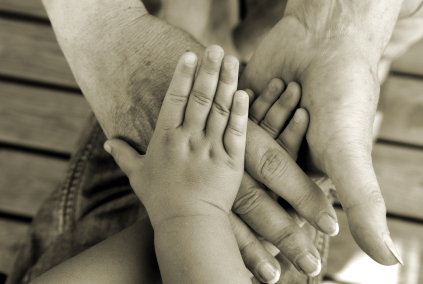I recently found out that the source of my middle-of-the-night wake-up calls was my gall bladder, not God inviting me in for a pow-wow.
In Chinese medicine, the gallbladder is associated with anger and resentment. Waking up at ‘gall bladder hour’ is a symptom of an underlying imbalance so I went to see one of my ‘spiritual’ teachers, Michael, to help me understand both the cause and the remedy.
“At the deepest part of your gall bladder is a great current of heat – anger that the ‘princess fairytale’ is not what life is about, and despair that people (yourself included) are not as far along as you had thought they would be,” he explained. “You feel the disconnect of people but you take it personally and you sometimes wear your isolation as a source of comfort.
“First, you must accept that you have anger. As humans, we all have anger. This is normal. But the remedy to any emotion that reduces your energy is first, acceptance.”
I thought briefly about what ‘acceptance’ really means. Previously, I would have ‘accepted’ the anger but then i would have analysed it and asked myself where it came from, why, how it had been playing out in other areas of my life and what I could do to expunge it. What Michael was suggesting was to accept with detachment – without the back story or the need to dissect the underlying assumptions and beliefs that went along with it. These stories we tell ourselves and the meanings we attach to our emotions are further investments of our energy that could be more effectively spent elsewhere.
“Second, you greet your acceptance with enthusiasm. Enthusiasm is a powerful antidote for emotions that are weakening your chi,” he continued.
“How do I move from acceptance to enthusiasm?” I asked.
“With gratitude” he answered. “You go into a state of gratitude, for all things great and small in your life. You notice everything around you that you can be grateful for and you focus on these. Soon you will feel enthusiasm spread through your body.
“There is no disconnect,” he continued. “There is no separation. When people think so much about things, as you do, that is when you feel separated and alone. And that is when you must connect back to the Higher Truth that is always there for you.”
“How do I do that?” I asked.
“By practicing compassion,” he answered. “First for yourself. And then for others, and for all of life”.
I have been musing about the true meaning of compassion for the past few days and have asked a few people for their thoughts and input about compassion as a concept. I am not satisfied with the dictionary definition but have just randomly stumbled on a website where one fellow ponderer offered his thoughts:
“Compassion is the driving force of humanity. It goes beyond self-conscious consideration of individual desire in order to serve another. Compassion is more than a word or an action. It is a feeling of love. Because you whole-heartedly love someone, you act in a compassionate manner towards them.”
Albert Einstein talked about “widening our circle of compassion to embrace all living creatures and the whole of nature in its beauty”.
In our current pop culture of fast-food spirituality the whole concept of compassion has become a little holier-than-thou and out-of-reach for a lot of people – it is the domain of Mother Theresa or His Holiness, the Dalai Lama but not necessarily the rest of us. But Einstein’s advice, and the thoughts of the fellow ponderer above, invite us to bring compassion into our daily lives just by feeling loving towards people, just by stopping for a moment to appreciate nature, even if nature’s immediate expression towards you is only a dandelion trapped in the crevice of a New York City sidewalk. Compassion is not so much in the doing but in the feeling that precedes the doing.
“Is there anything else?” I asked Michael.
“Nurture the vessel” he said. “Yes, you feed your body with the ‘right’ foods but you do so because you feel you “should” and at times, you resent this because you feel you are restricted. Instead, nourish the body with compassion – not because you have to, but because the body is truly the temple and the food you give it is your offering.
“In Hinduism, a grain of rice is a gift yet we consume huge amounts of food – much more than we need – without giving any thought to what we are doing. We place great stress on our body, not only through the type and amount of food we eat but also by the speed at which we consume and the thoughts we allow to consume us. When you sit down to eat, do so with mindfulness and intention on the nourishment the food offers. With this small shift in thinking, you change the vibration of the nourishment and that alone will affect great change on your health.”
When I first learned that I was having a small gallbladder “issue”, several friends immediately told me to “have it removed” without asking any other questions. There was a time when I would have considered that option as a first choice remedy. Certainly, the quick fix solution is the one many of us reach for most of the time and how lucky we are to have those kinds of options available to us. The other route – the route of acceptance, gratitude, enthusiasm, compassion – is a longer and more meandering path that takes a while to navigate and a lifetime to master. But what are we all racing around for anyway? There will always be things on the “to do” list, there will always be floors to sweep, dishes to clean, laundry to wash, emails to answer, bills to pay.
The choice I make today is to keep my gallbladder and take time to appreciate nature, even if it is only a flowery weed struggling to survive in the concrete jungle.
To quote one of my favorite poems from Robert Hastings “…stop pacing the aisles and counting the miles. Instead, climb more mountains, eat more ice cream, go barefoot more often, swim more rivers, watch more sunsets, laugh more and cry less. Life must be lived as we go along. The station will come soon enough.”


Recent Comments